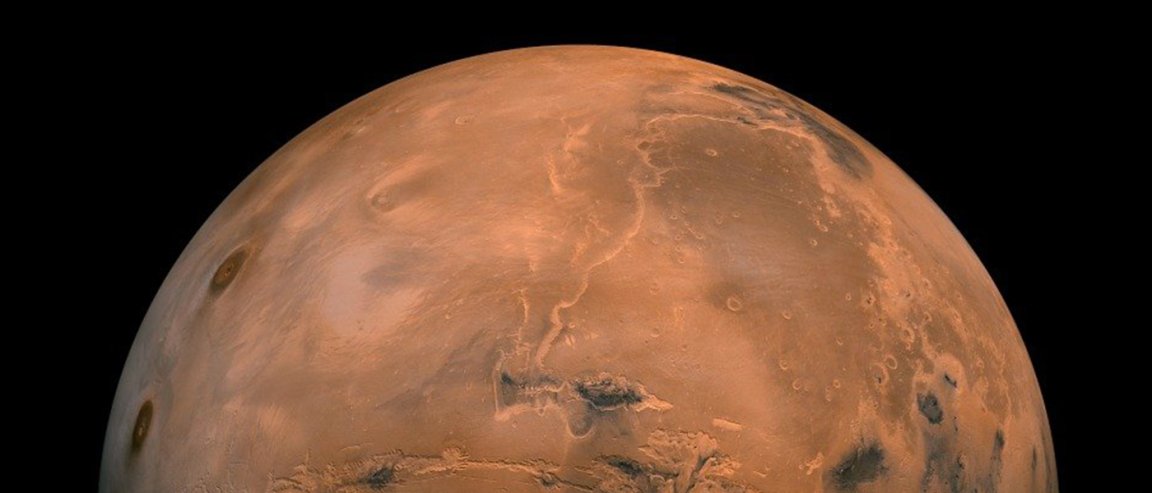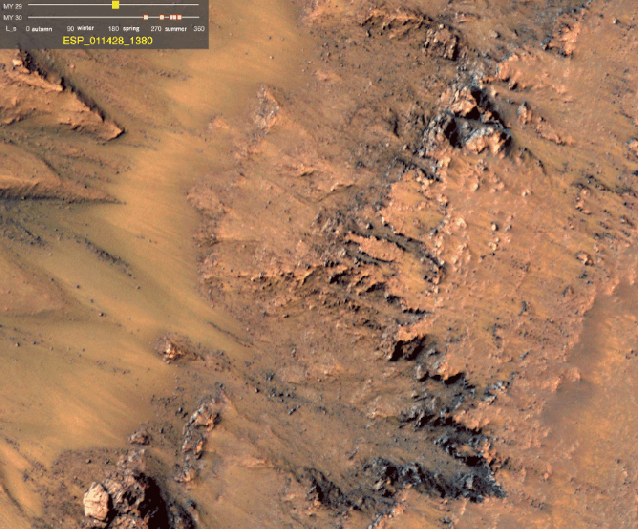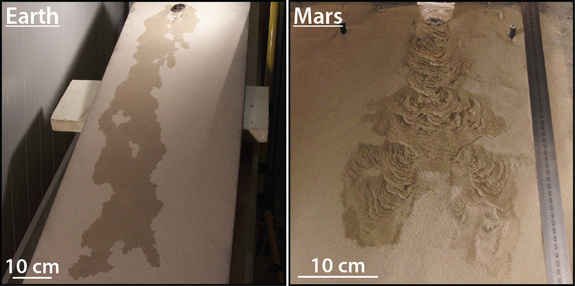
Water on Mars
First, we learned that there’s strong evidence supporting the existence of liquid salt water that flows on Mars (granted, only a tiny amount, but still). Now we find out that this same water may actually be boiling.
Strange as it may seem, this actually fills in the blanks on the first discovery—the yearly appearance of huge dark streaks that appear on the planet’s surface, and which can be seen by telescopes and satellites.
You see, the issue is the streaks themselves and the supposed flowing water that causes them. These lines in the sand are far more puzzling than boiling water on the Red Planet, and it all has to do with pressure. Ultimately, the presence of these streaks has baffled scientists because the low pressure of the atmosphere in Mars should either freeze or boil water…it shouldn’t be flowing anywhere.
At least that’s how we understand things here on Earth.

To break this down a bit: The discovery of hydrated salt minerals was the first clue to the existence of liquid water on Mars. These minerals are found in the dark streaks that run down the Martian slopes every year in the summer. The streak can be seen growing in length down the slope, and this process is caused by the planet’s increasing temperatures. Then, when the world cools, this liquid flow stops, and they eventually disappear.
Susan Conway, of the University of Nantes in France, notes the problem: “The atmospheric pressure on Mars is very low compared to that on the Earth, which means that water boils at a much lower temperature than it does on Earth….on the Martian surface the pressure is 5 to 10 millibars, meaning that liquid water boils no matter what the temperature is.”
So, what is making the streaks if the water on Mars isn’t liquid?
Boiling Water
To test this, scientists conducted an experiment that simulated the conditions on Mars to observe how water melts in such an atmosphere.

They found that even small amounts of water boiled in Martian conditions, and this boiling caused the formation of deep channels along the sand.
The results “show much less water is needed and that the water that is produced is very short-lived – therefore not a fabulous environment for micro-organisms,” says Conway. Their calculations even suggest that the boiling is even more intense with Mars’ gravity.